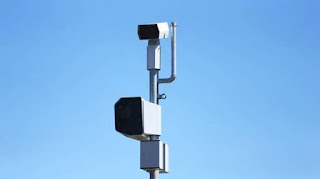Running a red light at two high-risk Christchurch intersections could lead to a $150 fine from next week.
One camera is at the intersection of Moorhouse Ave, Manchester St, and Pilgrim Place; while the other is at the intersection of Moorhouse Ave, Madras St, and Gasson St.
The cameras were installed last year and police had conducted extensive tests to calibrate them, the Christchurch City Council said. They would be operational from April 21.
There had been more than 100 crashes and fatal crashes at each intersection, according to Waka Kotahi NZ Transport Agency data.
The Christchurch City Council-owned cameras would be the first red-light cameras in the South Island to issue infringements, the council said. A red light camera was previously installed at the intersection of Bealey Ave and Madras St but was only used to collect data.
Council transport operations manager Stephen Wright said the council was partnering with police to make roads safer. Their efforts were part of a safety initiative supporting the Government’s Road to Zero safety strategy.
“As a council, we have invested in red-light safety cameras at both intersections to try and stop red-light running, reduce dangerous driving and save lives,” Wright said.
Running a red light could at the intersections could result in a $150 infringement ticket from police, he said.
In 2018, a survey by the Christchurch Transport Operations Centre (CTOC) at 15 city intersections found red lights were ignored 8170 times in just 24 hours, or 340 times per hour.
“Road safety is everyone’s responsibility and the consequences of running a red light can be deadly,” Wright said.
“Over the next month, you might spot some messages from us around these intersections, reminding everyone not to run red lights.”
Research from Monash University’s Accident Research Centre in Melbourne showed a 26 percent decrease in overall crashes at intersections where red-light cameras were installed, while there was a 47 percent decrease in cars traveling into an intersection on the side the camera was placed.
In the North Island, red-light safety cameras had been used in Auckland since 2014 and in Wellington.
National road policing center superintendent Steve Greally said running red lights to save a few seconds was dangerous and not worth risking lives.
“Our officers work hard every day trying to stop risky driver behavior, this includes people running red lights,” he said.
“Drivers need to remember that the decisions they make an impact not only them and their passengers but everyone else on the road.”
Wright said the council would work with police and Waka Kotahi on the planning and installation of further red light cameras.

